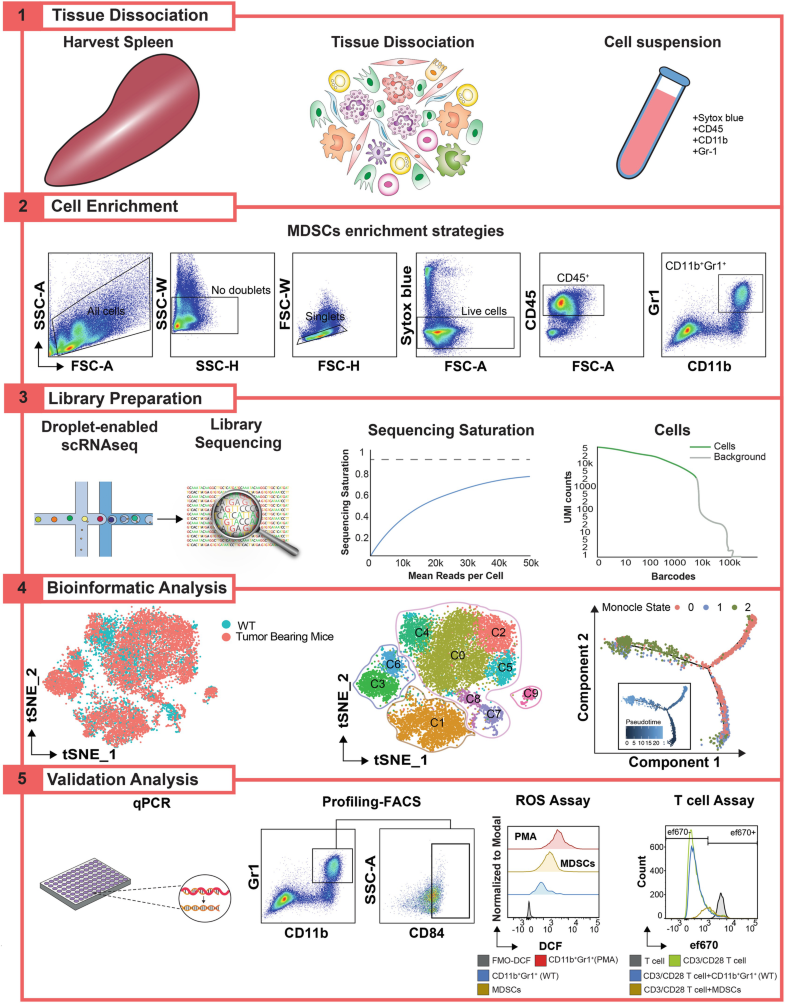in Publications, Workflow 6 days ago 495 Views
Single-cell transcriptomics is a powerful tool to study previously unrealized cellular heterogeneity at the resolution of individual cells. Most of the previous knowledge in cell biology is based on data generated by bulk analysis methods, which provide averaged readouts that usually mask cellular heterogeneity. This approach is challenging when the biological effect of interest is limited to a subpopulation within a cell type. This may particularly apply immune cell populations as these cells are highly mobile and swiftly respond to changes in cytokines or chemokines. For example, in cancer certain subset of myeloid immune cells may acquire immunosuppressive features to suppress antitumor immune responses, and thus described as myeloid-derived suppressor cells (MDSCs). Advances in single-cell RNA sequencing (scRNAseq) allowed scientists to overcome this limitation and enable in-depth interrogation of these subsets of immune cells including MDSCs. Researchers from the University of California, Irvine provide a detailed protocol for using scRNAseq to explore MDSCs in the context of splenic myeloid cells from breast tumor-bearing mice in comparison to wildtype controls to define the unique molecular features of immunosuppressive myeloid cells.
Alshetaiwi H, Pervolarakis N, Nguyen QH, Kessenbrock K. (2021) Single-Cell Transcriptome Analysis Workflow for Splenic Myeloid-Derived Suppressor Cells from Murine Breast Cancer Models. Methods Mol Biol 2236:177-187. [abstract]
https://www.rna-seqblog.com/single-cell-transcriptome-analysis-workflow-for-specific-immune-cell-types-in-breast-cancer-models/


